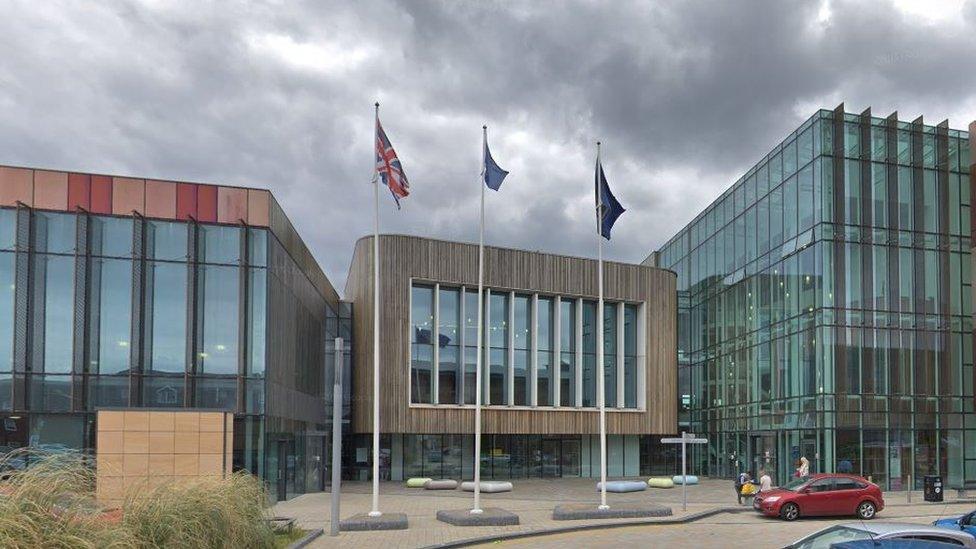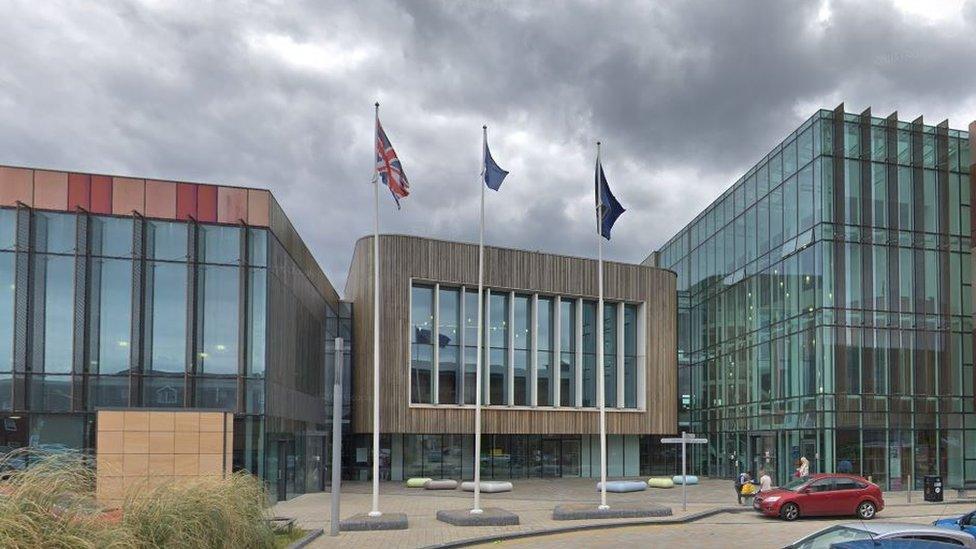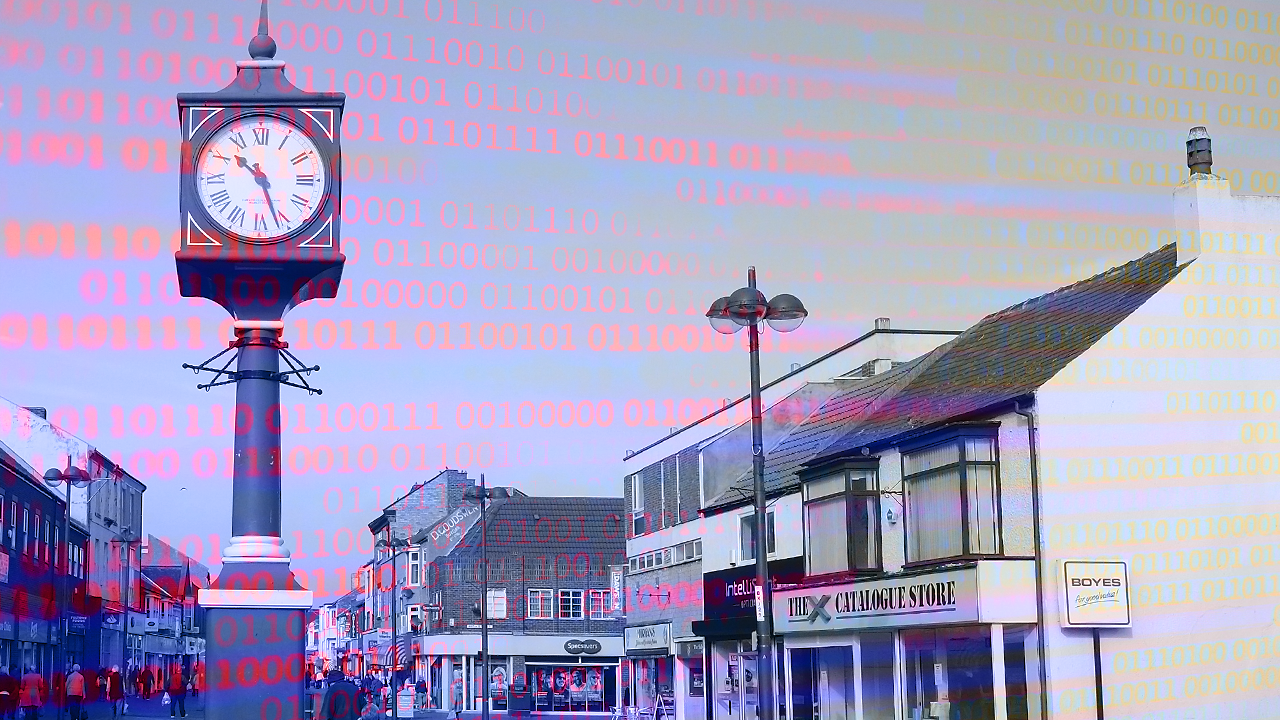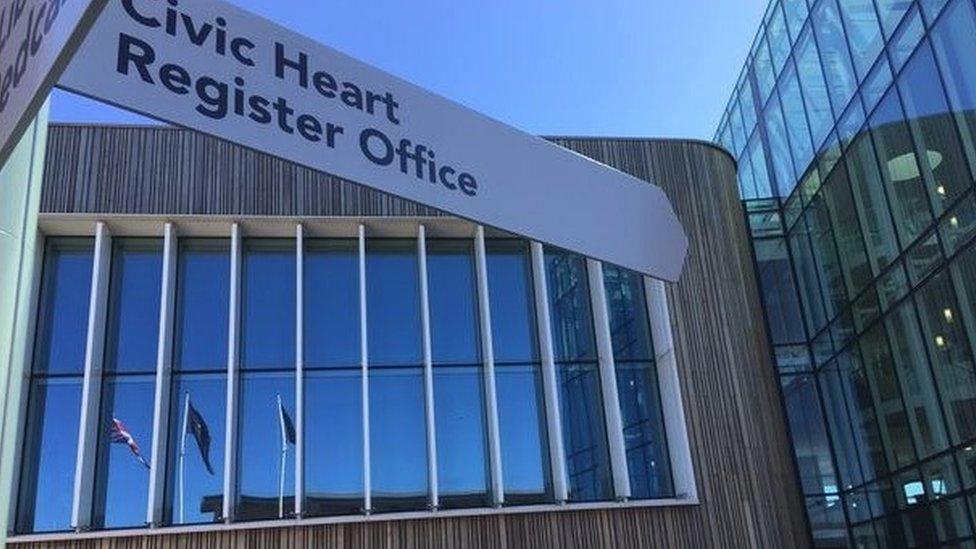Redcar council IT hack confirmed as ransomware attack
- Published

Redcar and Cleveland Borough Council's systems were first hit almost two weeks ago
A council has admitted its IT service is being targeted by hackers, who have scrambled files and demanded money.
Systems at Redcar and Cleveland Council have been down for almost three weeks after the ransomware attack.
It said it had been prioritising frontline services and has now built a new server and website, as well as mobilising a temporary call centre.
However, there may be a short delay in letting children know which secondary school they have got places at.
Since the attack on 8 February, the council has been working with the National Cyber Security Centre and the National Crime Agency.

Joe Tidy
BBC cyber security reporter
It has taken 19 days for the council to admit they are dealing with a ransomware attack.
This particularly nasty form of hack is unique and a growing problem for large targets like public authorities and companies.
Informing the public their council is being held to ransom is a key piece of information that many think people have a right to know.
It makes the situation far more serious as hackers are in control of computer systems and possibly sensitive data.
The only options are to pay the cyber criminals or rebuild from scratch by using offline backups, which is often far more costly.
With private firms the decision over whether or not to pay is often taken at board level behind closed doors but Redcar and Cleveland is a tax-payer funded body and residents may begin to demand transparency about how their money is being used.

Councillor Mary Lanigan, leader of the council, said: "Significant progress has been made.
"All frontline services have continued, payments continue to be processed as normal, and there is no evidence so far to suggest any personal information has been removed from our servers.
"However, it may be some time before our IT capabilities are fully restored which may mean frustration for the public in dealing with us administratively."
The delay in informing parents and carers of secondary school places would not affect the actual allocation, and it was anticipated primary admissions would be made on time, she said.
"As a council, we have always taken cyber security seriously, and we will continue to engage with the relevant authorities to ensure our systems are as secure as possible in the future," she said

Follow BBC North East & Cumbria on Twitter, external, Facebook, external and Instagram, external. Send your story ideas to northeastandcumbria@bbc.co.uk, external.
- Published20 February 2020

- Published17 February 2020

- Published14 February 2020

- Published12 February 2020
